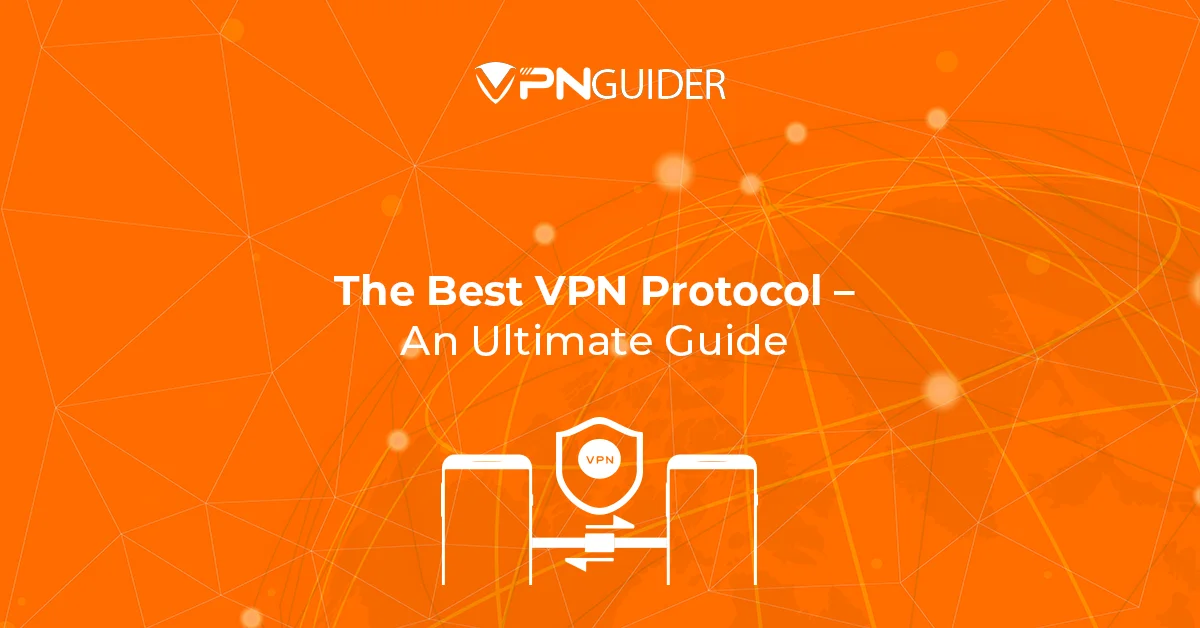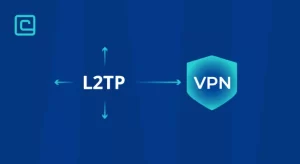 Why trust VPN Guider
Why trust VPN Guider
Considering the immense importance of online privacy, users are looking for ways to protect their online presence. One such means is to use a VPN. Using a VPN has become the need of the hour. It is the only security tool that guarantees robust security. Several VPNs are available in the market, but users need to choose the best VPN protocol per their need to get most of them.
If you’re new in the tech world, you’ve landed at the right place. So, let us dive into this article. This guide is all about different Best VPN protocol, along with their pros and cons. But before getting into it, let’s first discuss what VPN encryption is all about.
What is VPN Encryption?
VPN uses an encryption method to protect the users’ data when it travels from the encrypted tunnel. When you connect to a VPN on your device, all your traffic undergoes encrypting and then sends it to the VPN server. No one can ever view your data when it’s encrypted. Only if someone knows the decryption keys, then is it possible. But what’s encryption? VPN encryption is the process of changing your data into an unreadable form. The primary purpose is to prevent any unwanted parties from accessing it. When your data passes through the tunnel, your ISP can see you’re using a VPN. But they can’t view your activities.
VPN encryption uses different Best VPN Protocol that decides how to secure the tunnel. Each protocol varied in capabilities, speed, and even security flaws. During data encryption, each protocol uses a unique algorithm. The algorithm is a cypher that encrypts or decrypts the data. There are three different types of VPN encryption cyphers. The most widely used is the AES (Advanced Encryption Standard) cypher. AES, Camellia, and Blowfish are three cyphers.
What is a VPN Protocol?
A VPN is a privacy-boosting software that encrypts the data traffic and sends it through the VPN server. The VPN protects users’ data by using the process of encryption. The encryption process uses various encryption or VPN protocols. There are six different VPN protocols that a VPN uses. Each Best VPN Protocol has its pros and cons. In this section of the guide, I’ll explain these protocols. To choose the best VPN for yourself, knowing the difference between them is essential. The protocols are as follows:
- OpenVPN
- PPTP
- SSTP
- IKEv2
- L2TP
- WireGuard
Now, let’s discuss them in detail.
OpenVPN

It is a short name for the open-source virtual private network. It is open-source software that uses SSL protocol. This Best VPN Protocol ensures that the traffic privately passes between the two devices. OpenVPN is a popular, reliable, and industry-standard protocol. It uses military-grade AES-256-bit encryption by OpenSSL. It is fast and capable enough to provide robust security and encryption level to the users. Almost all service providers come with OpenVPN protocol.
It is compatible with Android, Windows, and Linux, except for macOS and iOS. Sometimes you need extra software to install it on macOS and iOS. OpenVPN comes with two different ports:
- OpenVPN-TCP: This Best VPN Protocol is for security purposes. By connecting to this server, each packet is first approved by the receiving party. In this way, it makes the connection secure, but the process is slow.
- OpenVPN-UDP: It ensures fast speed. It is faster than the OpenVPN-TCP port. In this, the data packets are sent without asking for approval from the receiving party. But, it is short but less secure than the OpenVPN-TCP port.
Security experts are always looking for new ways to improve the Best VPN Protocol. They are fixing the vulnerabilities to give outstanding results in all aspects.
Pros:
- Available in all VPN providers
- Compatible with all major devices and platforms
- Provides high-level encryption
- Safe and reliable
- Security experts are evaluating it for improvements.
Cons
- Requires extra software for installation
- The Setup process is a bit technical.
PPTP

A team led by Microsoft developed the Point-to-Point Tunneling Best VPN Protocol. It is the oldest tunnelling protocol that offers fast speed and is easy to use. It provides both remote and site-to-site access to the VPN over the internet. The PPTP protocol does not have much, high-level encryption; thus, it’s the fastest. It requires only the username, password, and server address to create a tunnel. The VPN tunnelling protocol is easy to set up and doesn’t need any extra software for installation. It allows quick connection and is popular among both business and commercial users. The only VPN protocol relies on various authentication methods to provide the most security.
The Best VPN Protocol uses a 128-bit encryption key, which is not wholly secure. The VPN is compatible with all other devices and systems. But, this Best VPN Protocol comes with some vulnerabilities. The network that uses PPTP requires extra security practices to provide reliable security. But, in doing so, you lose the advantages that the protocol aims to provide. Moreover, the firewalls blocking VPN users recognize all the PPTP users. Hence, I recommend using this protocol, where security is not your primary concern.
Pros
- Fast
- Compatible with all major devices, operating systems, and platforms
- Simple to configure
Cons
- Basic encryption level
- Hackers often comprise PPTP security flaws.
- It gets blocked by Firewalls
- Not much secure
L2TP

The Layer 2 Tunneling Best VPN Protocol combines with another IPSec protocol to safeguard users’ data. It is much faster and more secure than the traditional PPTP. Also, it provides enough confidentiality and encryption for passing the traffic to the VPN server. It is a by-default protocol in most operating systems and is easy to set up and use. If OpenVPN and IKEv2 protocols are absent, L2TP/IPSec is the most preferred option. This protocol captures the data twice, so it fails to provide a fast connection. Although it allows for slow speed, the relationship is secure and private.
The L2TP uses the AES cypher and has no significant security flaws. But, security experts have talked about it being compromised by the NSA. Furthermore, some firewalls can block the users using this Best VPN Protocol. The L2TP uses UDP 500 port, which most websites stop. Despite having some technical issues, it is secure to use. It’s also compatible with most devices and OS, so it’s the right choice.
Pros
- Compatible with other OS and platforms
- Reliable encryption than PPTP
Cons
- Firewalls can detect it.
- Slow speeds
- Exploited by NSA
SSTP

Microsoft developed the Secure Socket Tunneling Best VPN Protocol to protect users’ online activities. It uses strong encryption, which makes it one of the most secure tunnelling protocols. By default, Windows 7, 8, and 10 support it, making it easy for Windows users. It is easy to set up and uses SSL to secure web connections. The best thing about SSTP is using it instead of PPTP and L2TP/IPSec. It is beneficial as they can’t get blocked because the traffic redirects over the HTTPS connection. Moreover, it also uses SSL v3, which helps to stop the NAT firewalls.
SSTP is a proprietary technology by Microsoft. It is secure to use and has similar advantages to OpenVPN, but Microsoft’s proprietary technology is a worrying point. It is challenging to independently evaluate the codes behind and detect security flaws. Furthermore, being a Windows product, it is more compatible with Windows. Though it works with macOS and Linux, the results are not very effective.
Pros
- Easy to set up and use
- Owned by Microsoft
- Provides enough security
- Surpass Firewalls
Cons
- Not valid on other platforms.
- Vulnerable to attacks
IKEv2
The Internet Key Exchange Version 2 is not a tunnelling protocol but functions like the one. When you use this protocol, the IPSec protocol encrypts it first and then sends it to the encrypted tunnel. From here, your data traffic passes to the VPN server. It uses port UDP 500, which means that still, some firewalls can block it. The presence of IPSec makes it a secure VPN tunnelling Best VPN Protocol. The IPSec comes with stable encryption patterns that guarantee robust security. IKEv2, when combined with IPSec, provides consistent speeds, stability, and easy usage.
It also supports the mobility and multihoming protocol, which is resilient to different networks. If you want to use it on your mobile phone, then IKEv2 is the best choice. You can easily switch between your home Wi-Fi network and mobile network. The only drawback of the IKEv2 protocol is that it is vulnerable to hackers when used with weak passwords.
Pros
- Consistent speed
- Ease of use while switching the connections
- Fastest VPN protocol
- High encryption level
- Simple to use
- Supports other encryption protocols
Cons
- Limited configurations
- It only supports only narrow platforms.
- Vulnerable to hackers
WireGuard

It is a new VPN tunnelling Best VPN Protocol that is still in its developing phase, developed by Jason Donenfeld. The WireGuard protocol is the safest after OpenVPN. Because it is UDP-based, it has built-in stealth and bypasses all firewalls. The tunnelling protocol is smaller than OpenVPN and IPSec because its code size is only 3782. It uses SSH authenticated keys as its authentication model. It promises to solve the speed issue caused by various VPN providers.
The WireGuard protocol uses a ChaCha20 cypher. It is not much common but is competitive with AES. But, it is three times faster and more robust; thus, WireGuard is the most secure and fast future Best VPN Protocol. It was mainly designed for the Linux platform. But now, Android, macOS, and Windows are also using it. Being in the development stage, most VPN providers use it for experimental purposes. Currently, it only supports the static IP address, but as a whole, it is a fast VPN protocol.
Pros
- Fast and open-source protocol
- Small code makes it easy to detect flaws.
- Third generation protocol
Cons
- It is in the development stage.
- Not compatible with a zero-log policy.
Which is the Best VPN Protocol?
Each protocol has a different function and worth. All are best in one way or the other. But, if we compare so, the best of all is the Open Best VPN Protocol. It is not just the best but also the safest one. It is an open-source protocol that uses the AES-256 cypher. When tested, OpenVPN didn’t have any severe flaws or vulnerabilities. It provides a complete balance between performance and privacy. It comes as a by-default Best VPN Protocol in many VPN providers. Moreover, it is compatible with all major devices and platforms, making it the best choice.
The other best one is WireGuard. Although it is new, it is a formidable contender to OpenVPN. The IKEv2 is yet another best VPN protocol. It is the most preferred choice for mobile phone users. It makes the connection switching an easy task and comes with consistent speed. Besides speed and security, there are other things that you need to consider for choosing the best VPN protocol.
- Implements Perfect Forward Secrecy
- Uses SHA-2 authentication
- Uses robust key exchange protocols (RSA-2048 or ECDH).
Quick Comparison Table
Here’s a quick overview of all the VPN protocols.
VPN Protocol Encryption Standard Connection Stability Speed
OpenVPN-TCP 256-bit Very Stable Standard
OpenVPN-UDP 256-bit Stable Fast
PPTP 128-bit Very Stable Very fast
L2TP/IPSec 256-bit Stable Standard
SSTP 256-bit Very Stable Fast
IKEv2/IPSec 256-bit Very Stable Very fast
WireGuard ChaCha20 cypher Very Stable Very fast
[postVpn]
Parting Words
A VPN protects your data from all spying eyes. To do so, the privacy tool uses tunnelling protocols that hide your browsing activities. When choosing a VPN, tunnelling or VPN protocols play a vital role. There are six various VPN protocols. Each of them has its function, advantages, and disadvantages. Among all the best VPN protocols is OpenVPN. It is the most secure and provides all users with a top-notch level of security and protection. Hopefully, by now, you can better understand encryption and protocols.


